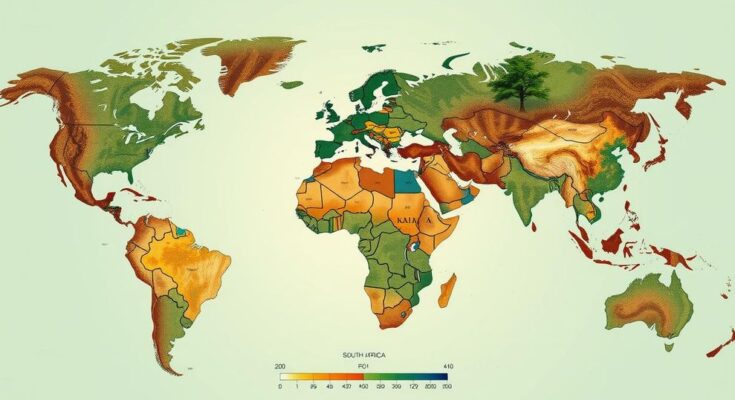South Africa’s G20 presidency, led by President Cyril Ramaphosa, marks the first time an African nation chairs the group. Ramaphosa’s agenda emphasizes climate change, debt relief, and economic transformation by utilizing Africa’s mineral resources. The presidency faces challenges amid global geopolitical tensions, particularly between the US and China, necessitating strong diplomatic efforts to promote Africa’s interests and ensure equitable policies.
As South Africa steps into the role of the G20 presidency, it marks a historic moment for the African continent. President Cyril Ramaphosa has outlined a progressive agenda that emphasizes critical issues such as climate change, debt relief, and economic transformation. One of the key components of South Africa’s strategy will be the utilization of mineral resources across the continent, including cobalt sourced from the Democratic Republic of the Congo, to bolster economic growth and development throughout Africa. In addition, South Africa aims to navigate the complexities of global politics, seeking to reconcile opposing interests while addressing the ramifications of geopolitical tensions, particularly those arising from the ongoing Ukraine conflict.
Analysts have expressed that President Ramaphosa’s historical success in consensus-building, especially demonstrated during the formulation of South Africa’s 1996 constitution, alongside the country’s ability to host the 2023 BRICS summit, will be invaluable in leading the G20 effectively. However, they caution that his diplomatic skill will be under considerable scrutiny in light of rising tensions between the US and China and the increasing trend of protectionism. Furthermore, the advocacy for fair and equitable policies for Africa remains a priority as the continent seeks to assert its voice on the global stage.
The G20, comprising the world’s largest economies, plays a pivotal role in shaping global economic policy. South Africa’s presidency not only signifies a milestone for the nation but also for the African continent as a whole, representing an opportunity to highlight African issues within the international arena. In a backdrop of escalating crises such as climate change and geopolitical strife, South Africa’s agenda aims to promote sustainable development and economic transformation, with a significant focus on leveraging the continent’s natural resources. Navigating through international tensions and advocating for the interests of developing countries, particularly in Africa, presents both challenges and opportunities for President Ramaphosa.
In conclusion, South Africa’s presidency of the G20 presents an unprecedented opportunity for the nation to champion African priorities on a global platform. With a focus on climate change, debt relief, and economic transformation, alongside efforts to reduce the impact of geopolitical conflicts, President Ramaphosa’s leadership will be closely observed. As he endeavors to unite disparate global interests, the effectiveness of his diplomatic strategies will be crucial to advancing not only South Africa’s but also Africa’s position in an increasingly complex international landscape.
Original Source: iafrica.com




